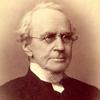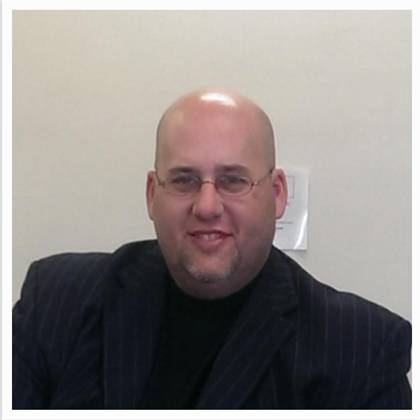Introduction

After several months of connecting on-line, I had the privilege of meeting Michael in Lancaster, PA. What brought him to my neck of the woods? His research on John Williamson Nevin (1803 – 1886). John Williamson Nevin not only taught in the seminary of the German Reformed Church in America in the mid-nineteenth century, but also served as the president of Franklin and Marshall College. Furthermore, he was a friend to James Buchanan, the 15th president of the United States. Did you know that Buchanan lived in Lancaster, PA? Please join me in welcoming Michael to the growing family of Emerging Scholars contributing to the blog. If you’re interested in joining our blogging team, please read Want to write for the ESN blog? and drop me a line with a proposal 🙂 To God be glory!
Part One – Returning to Grad School

In the spring of 2011, I did something that many would consider to be foolish, I resigned my job so I could return to school to work on my doctorate. This might not seem like such a big deal, except that it had been nearly twenty years since I had been a full-time student. It was not that I had been out of education entirely; I was a high school theology and history teacher and principal in various Christian schools. I enjoyed my work as a teacher and a principal, but I had long desired to teach theology at the post-secondary or graduate level. But to be able to do that, I needed to go back to school to get more education. Additionally, I felt like I had reached a point where I needed to get more education to advance in administration on a secondary level. So, I was in a position where I needed to go back to school; the question then became a matter of which direction I was going to pursue as my life vocation.
It would probably have made sense on some level to pursue secondary administration, but ever since my days in graduate school I believed I had what it took to be able to do doctoral work in theology. But it had been a number of years since I had really done any focused work in theology. I had continued to read theology and I had expanded my library significantly since my days in graduate school. But I no longer read theological journals; my current journal reading was related to the education field. I continued to think about education in what I considered to be theological terms (for instance, I orientated my philosophy of education around the Biblical concept of wisdom and the Wisdom Literature), but I was not really doing theology anymore. On a personal level, part of me wanted to know whether I could step back into the world of academia. Not just from a self-understanding level – although I am sure that some pride was present – but from the stand point of being able to teach at the level to which I felt God was calling me.
I also faced additional dilemmas in thinking of pursuing my doctorate. Many of the professors that I studied under were no longer in academia, several had passed away, and for those remaining I questioned whether they would even remember me and my abilities as a theology student. I had taken some education classes to get my teaching certification, but these were all on-line and in the wrong field. So I began the process of contacting several of my previous professors who I thought might remember me and might be willing to write me a reference letter. I also asked several of my current colleagues who held earned doctorates if they would be willing to write reference letters for me. I secured one good reference letter from a former professor and the letters from my colleagues and I figured that at this stage of my life that was a good as I was going to get. There only remained one major hurdle – the GRE’s.
So, with some trepidation, I began making some appointments to visit some graduate programs that were on my list and decided that I was going to apply to 4 programs. I had two that were at the top of my list, one of them being the school that I actually ended up enrolling in: Catholic University in Washington, DC. The main advantages that CUA had over other schools was that it was in proximity to where we lived and I could study theology, not just religious studies.
Early in this process, I had made a determination that I wanted to study at a university, not a seminary. While seminary programs are a good idea for many people, seminary PhD programs tend to be very focused on ad intra discussions. As a result, the areas for research tend to lean toward defending particular positions. I also felt like a university would potentially open more doors when it came time to actually looking for a job. And universities also tend to have more focus on working with undergraduates, where I was hoping that my previous experience working in high-school would have a little more benefit than at a seminary. For a variety of reasons like these, I had decided that I was more interested in going to a research university rather than a seminary. So I sent off my applications, hoping that I could get into one of those programs. And then began the waiting.
I do not know if God has a sense of humor or not – Jesus most certainly did since he did assume all of the qualities of human nature and humor seems to be a universal human quality – but in spite of all of my deficiencies, Catholic decided to accept me into the theology program. In the midst of the rejection letters, one arrived that said “Welcome!” I had my opportunity. However, it is one thing to have an opportunity, and another thing to quit your job and take your family on a journey of poverty for several years, hoping at the end that you will be able to get a job. So after many months of seeking God’s face, and piles of prayer by family and friends, I paid my deposit, and matriculated at CUA. I was going back to school, full-time. I may end up not being able to make the cut, but I would be able to go to my grave saying that I had at least tried (that sounds much more dramatic than the thought was in my mind).
Stay tuned for Part Two – Being a Grad Student.
I am a PhD student in theology at Catholic University of America in Washington, DC. I am studying the theology of John Williamson Nevin, who taught in the seminary of the German Reformed Church in America in the mid-nineteenth century. He was also the president of Franklin and Marshall College and a friend to James Buchanan, the 15th president of the United States. I am currently a teaching fellow at CUA, teaching undergraduate theology and Church History classes. My goal is to teach at a college or university after completing my degree program. I am also the current vice-president of the graduate student association at CUA. Before life as a grad student (if that were an acronym it would be BLaaGS) I was a teacher and principal in secondary education at various Christian schools in the Northeast. My family and I currently live in Hagerstown, MD.

Leave a Reply